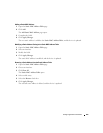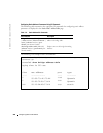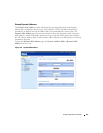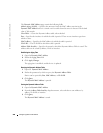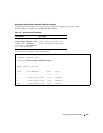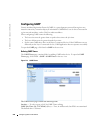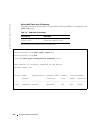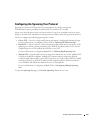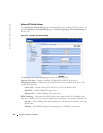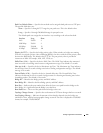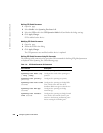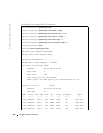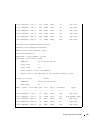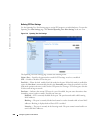
Configuring Switch Information 273
Configuring the Spanning Tree Protocol
Spanning Tree Protocol (STP) provides tree topography for any bridge arrangement.
STP eliminates loops by providing one path between end stations on a network.
Loops occur when alternate routes exist between hosts. Loops in an extended network can cause
bridges to forward traffic indefinitely, resulting in increased traffic and reducing network efficiency.
The device supports the following Spanning Tree versions:
•
Classic STP
— Provides a single path between end stations, avoiding and eliminating loops.
For more information on configuring Classic STP, see
Defining STP Global Settings
.
•
Rapid STP
— Detects and uses of network topologies that provide faster convergence of the
spanning tree, without creating forwarding loops. If RSTP is enabled on the device, but the
neighboring device is STP enabled, the local device uses STP.
For more information on configuring Rapid STP, see
Defining Rapid Spanning Tree
.
•
Multiple STP
— Provides full connectivity for packets allocated to any VLAN. Multiple STP
is based on the RSTP. In addition, Multiple STP transmits packets assigned to different
VLANs through different MST regions. MST regions act as a single bridge if MSTP is enabled
on the device. However, if RSTP is enabled on the neighboring device and the local device
uses STP, RSTP, and MSTP, then both the devices are interoperable.
For more information on configuring Multiple STP, see
Configuring Multiple Spanning
Tree
.
To open the
Spanning Tree
page, click
Switch
→
Spanning Tree
in the tree view.



